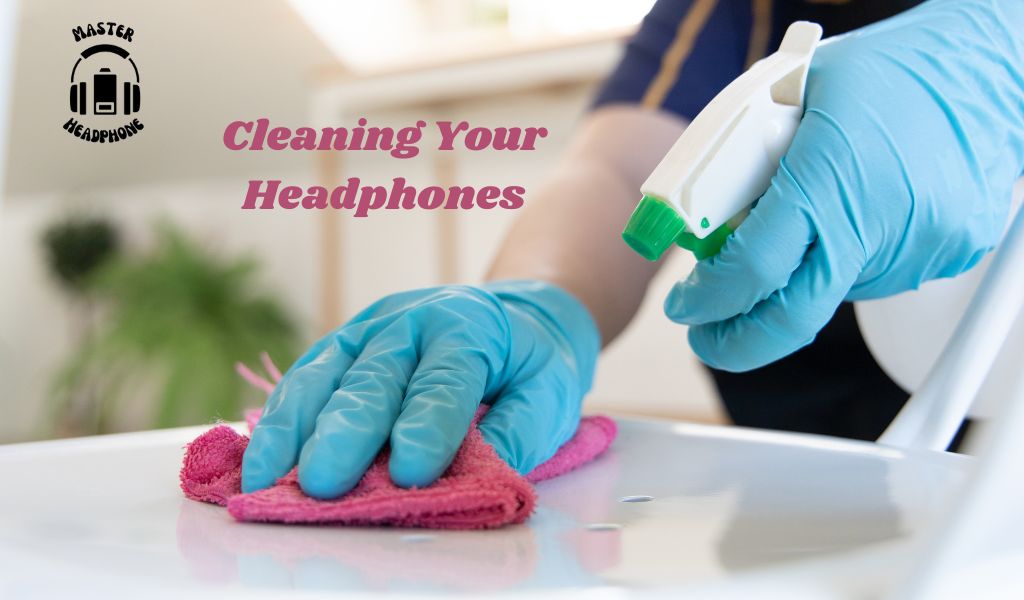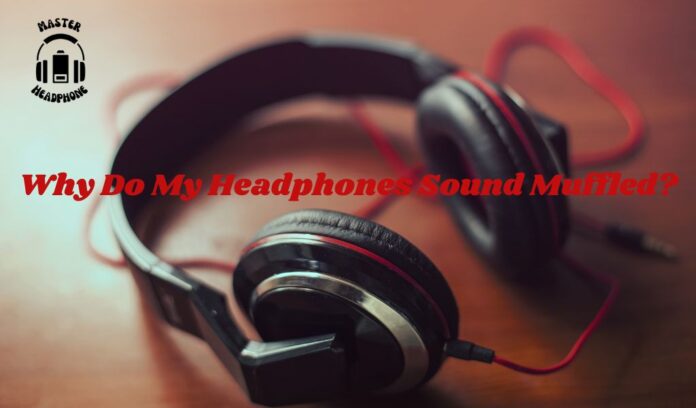If your headphones sound muffled, it could be due to low volume or dirty connections. Make sure to check the volume and clean the audio ports for improved sound quality.
Muffled audio can also be caused by interference from other Bluetooth devices or incorrect equalizer settings on your audio source. Additionally, a loose wired connection to the audio source can also lead to muffled sound. By addressing these factors, you can troubleshoot and improve the audio clarity of your headphones.
Remember to also disable any unnecessary audio enhancements or adjust the equalizer as needed. Muffled headphone sound can be frustrating and impact your listening experience. Understanding the possible causes and troubleshooting steps can help you address the issue effectively. By taking simple measures such as adjusting the volume, cleaning the connections, and managing Bluetooth devices, you can enjoy clear and crisp sound from your headphones.
Common Causes
When your headphones sound muffled, it can be frustrating and impact your listening experience. Several common causes can lead to this issue. It is important to identify and address these causes to enjoy crystal-clear audio. Below are some of the common culprits that can result in muffled headphone sound.
Dust And Debris
Dust and debris can accumulate in the audio jack or around the ear cushions, leading to muffled sound quality. Over time, this buildup may affect the proper transmission of sound signals, resulting in decreased audio clarity. Regularly cleaning your headphones and ensuring the audio ports are free from debris can help prevent this issue.
Audio Equalizer Settings
The audio equalizer settings on your device or audio source can impact the headphone sound quality. Imbalanced or incorrect equalizer settings may lead to distorted or muffled audio. Adjusting the equalizer to optimize the sound frequencies can help alleviate this problem.
Connectivity Issues
Connectivity problems, especially in wireless headphones, can cause muffled sound. Intermittent Bluetooth connections or interference from other electronic devices may result in degraded audio quality. Ensuring a stable and clear connection between your headphones and the audio source is essential for clear sound reproduction.
Troubleshooting
Troubleshooting the issue of muffled sound in headphones can be a frustrating experience for any music lover or avid podcast listener. Several factors can contribute to this problem, including issues with cleanliness, equalizer settings, and connectivity. Understanding how to troubleshoot these elements can help ensure a smooth and enjoyable listening experience with your headphones.
Cleaning Your Headphones

One common cause of muffled sound in headphones is the buildup of dirt, earwax, or debris in the ear cups or on the speaker drivers. To resolve this issue, gently clean your headphones using a soft, dry cloth to remove any visible dirt or grime. For stubborn residue, consider using a mild cleaning solution specifically designed for electronic devices. Additionally, ensure that the ear pads are securely attached to the headphones and free from any obstructions.
Adjusting Equalizer Settings
Incorrect equalizer settings on your audio device can also lead to muffled sound in headphones. Check the equalizer settings on your device and adjust them to optimize the audio output for your specific headphones. Experiment with different preset options or fine-tune the settings manually to achieve the best sound quality. Pay attention to the bass, midrange, and treble levels to ensure a balanced and clear audio experience.
Checking Connectivity
The connectivity of your headphones to the audio source can impact the sound quality. If you are using wireless headphones, ensure that the Bluetooth connection is stable and free from interference. Disconnect from any unnecessary Bluetooth devices that may be causing signal disruptions. For wired headphones, inspect the cable for any damage or loose connections, and try using a different audio source to rule out compatibility issues.
Technical Fixes
If your headphones sound muffled, there could be a few reasons behind it. You can try adjusting the equalizer settings, checking for any dirt or water damage, or disconnecting from multiple Bluetooth devices to improve audio quality. Additionally, recording without effects and applying some EQ to the vocal track can help reduce muffled vocals.
Deactivating Audio Enhancements
Several audio enhancements such as surround sound, bass boost, or equalizer settings can sometimes cause distortion or a muffled sound in headphones. To rectify this issue, it’s important to deactivate any audio enhancements by following these steps:
- Access the audio settings on your device or audio playback software.
- Look for any active audio enhancements, and disable them.
- Test your headphones to see if the muffled sound persists.
Disconnecting From Bluetooth Devices
If your headphones are connected to multiple Bluetooth devices, it can result in interference and lead to a muffled sound. To resolve this, consider the following steps:
- Turn off Bluetooth on any other devices where your headphones are connected.
- Disconnect the headphones and reconnect them to the primary device.
- Test the audio to see if the muffled sound has been eliminated.
Ensuring Proper Mic Usage For Bluetooth Headphones
When using Bluetooth headphones with a microphone, the audio quality can be compromised if the mic is not being used properly. To address this issue:
- Mute the microphone when not in use to avoid entering the second mode of Bluetooth audio that reduces sound quality.
- Ensure the headphone’s microphone is properly positioned and not obstructed.
- Conduct a test call or audio recording to verify if the sound quality has improved.
Frequently Asked Questions Of Why Do My Headphones Sound Muffled?
How Do You Fix Muffled Headphones?
To fix muffled headphones, increase volume, adjust equalizer settings, and disable interfering audio enhancements if needed. Disconnect from multiple Bluetooth devices to improve sound quality. Check for dirt or water damage, try different ports, and adjust equalizer settings. Avoid using effects and record in open spaces to prevent muffled sound.
How Do I Fix The Sound Quality On My Headphones?
To fix headphone sound quality, adjust volume, equalizer settings, & disable audio enhancements that cause interference. Disconnect from extra Bluetooth devices to improve audio. Check for dirt or water damage, try different ports, and lower volume if needed. For Bluetooth issues, ensure mic and audio modes aren’t conflicting.
Why Are My Bluetooth Headphones Muffled When Using The Mic?
Bluetooth headphones may sound muffled when using the mic due to interference from audio enhancements. Adjusting volume and disconnecting from other Bluetooth devices can help improve audio quality. Additionally, ensure the mic is not in use when focusing on listening to higher-quality audio.
How Do I Reduce Muffled Audio?
To reduce muffled audio, adjust the equalizer settings, increase the volume, or disable audio enhancements. Disconnect from multiple Bluetooth devices and record in an open space with a good microphone. Let me know if you need anything else.
Conclusion
If you’ve been experiencing muffled sound in your headphones, rest assured there are solutions. By adjusting the volume and equalizer settings, paying attention to Bluetooth connections, and ensuring proper audio configurations, you can significantly improve your listening experience. Keep these tips in mind to enjoy pristine audio quality from your headphones.

